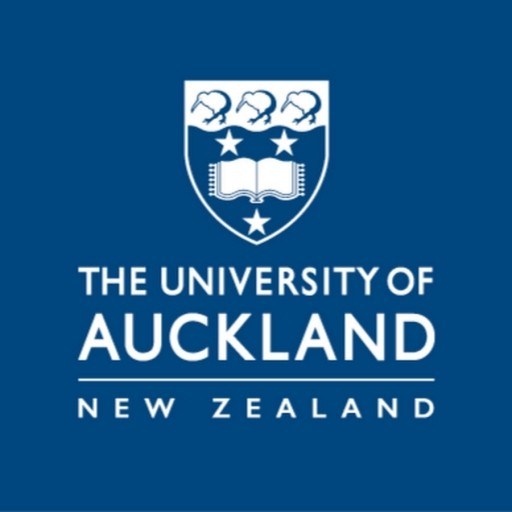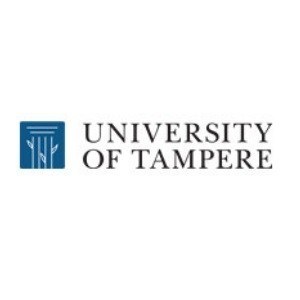Photos of university / #universityofauckland
The Bachelor of Professional Studies in Data Science at The University of Auckland is a comprehensive undergraduate program designed to equip students with the essential skills and knowledge required to excel in the rapidly evolving field of data science. This innovative degree combines core disciplines such as computer science, statistics, and mathematics with applied knowledge in data analysis, machine learning, and data management, providing students with a well-rounded education that prepares them for a variety of careers in industry, government, and academia. Throughout the program, students will develop practical skills through hands-on projects, industry internships, and collaborative work, ensuring they are workforce-ready upon graduation. The curriculum emphasizes real-world problem solving, data-driven decision-making, and ethical considerations in data handling, reflecting the growing importance of responsible data use in society. The program is designed to cater to students with diverse backgrounds, encouraging interdisciplinary approaches and fostering a deep understanding of both technical concepts and their applications. Graduates of this program will be prepared for roles such as data analyst, data scientist, business intelligence analyst, and other positions that require advanced analytical capabilities. With Access to state-of-the-art facilities and learning resources, students have the opportunity to engage with current industry practices and cutting-edge technologies. The University of Auckland's strong links with industry partners also enable students to gain valuable real-world experience and build professional networks. Upon completing the Bachelor of Professional Studies in Data Science, students will be equipped to contribute innovative solutions to complex data challenges across various sectors, supporting data-driven transformation and decision-making processes in their future careers.
Programme structure
The Master of Professional Studies in Data Science is a taught masters programme which can be taken full-time or can take up to four years part-time. It is based around a core of at least four advanced Computer Science and Statistics courses. Courses are offered at the City campus during the standard University of Auckland semester period. Courses can be selected from:
- At least 30 points from COMPSCI 751, 752, 753, 760
- At least 30 points from STATS 762, 769, 782, 784
- Up to 30 points from courses relevant to the area of study from SCIENT 701, 702, COMPSCI 705, 711, 720, 732, 734, INFOSYS 720, 722, 726, 727, 737, 740, OPSMGT 760, 762, 764, STATS 779, 783
- 30 points from COMPSCI 791 Dissertation
Entry requirements
In order to be admitted to this programme, a student needs to have completed:
either
- the requirements for a four-year Bachelors degree
or
- the requirements for a Bachelors (Honours) degree
or
- the requirements for a Bachelors degree
and
- have at least a B- average grade in the 90 points (or equivalent) of the most advanced courses of the degree
and
- either a professional qualification equivalent to one year’s advanced study or at least three years of professional experience deemed relevant to this programme by Senate or its representative
and
- any prerequisites for the courses in the subject area in which they wish to enrol.
Applicants who do not have the background to take the core 700 level Computer Science courses should first take some relevant computer science courses as part of a Certificate of Proficiency programme. (COMPSCI 220 Algorithms and Data Structures and/or COMPSCI 230 Software Construction, for example.)
Applicants who do not have the background to take the core 700 level Statistics courses should also first take some relevant statistics courses as part of a Certificate of Proficiency programme. (STATS 201 Data Analysis or STATS 207 Data-centered investigation and analysis, for example.)
English language requirements
- IELTS (Academic): Overall score of 6.5 and all bands 6.0 or better
- Internet-based TOEFL (iBT): Overall score of 90 plus a written score of 21
- Paper-based TOEFL: Overall score of 575 plus Essay (TWE) of 4.5
- Cambridge English: Advanced (CAE) and Cambridge English: Proficiency (CPE): Overall score of 176 and all bands 169 or better
- Pearson Test of English (PTE) Academic: Overall score of 58 and no PTE communicative skills score below 50.
- Michigan English Language Assessment Battery (MELAB): 85
The University of Auckland offers a comprehensive range of financing options for students enrolled in the Professional Studies in Data Science program. Prospective students are encouraged to explore various funding sources to support their academic pursuits. The university provides scholarships specifically targeted at students pursuing data science and related fields, which are awarded based on academic merit, financial need, and other criteria. These scholarships often cover tuition fees partially or in full and may also include stipends for living expenses.
In addition to university-specific scholarships, students can apply for government-funded support such as student loans and allowances, depending on their residency status and eligibility. The New Zealand government offers student loan schemes through the StudyLink program, which can be used to cover tuition fees and living costs while studying at the university. International students, who make up a significant portion of the student body in data science programs, are generally not eligible for government loans but may access scholarships, bursaries, and financial aid provided by the university or external organizations.
The university also works closely with private donors and industry partners to establish bursaries and sponsorship programs. These financial aids are designed to attract talented students and foster industry-university collaborations. Students are advised to regularly check the university’s official website for updates on new scholarships, bursaries, and financial aid opportunities specific to the Data Science program.
Furthermore, students might consider part-time work opportunities available on campus or within the Auckland community, which can help offset living expenses while gaining relevant experience in the field. The university’s career services offer guidance and resources for students seeking employment aligned with their studies.
Overall, the financing landscape for the Professional Studies in Data Science at the University of Auckland is diverse, including scholarships, government support, industry sponsorships, and employment opportunities. Prospective students are encouraged to research and apply early for these funding options, ensuring they maximize their financial support throughout their academic journey. The university remains committed to making education accessible and affordable, providing comprehensive advice and assistance to help students secure the necessary funding to complete their degrees successfully.
The Professional Studies in Data Science programme at The University of Auckland is designed to equip students with the essential skills and knowledge needed to excel in the rapidly growing field of data science. This programme is suitable for individuals seeking to develop a comprehensive understanding of data analysis, machine learning, statistical methods, and data management techniques. The programme emphasizes practical application and industry relevance, preparing graduates to address complex data challenges across various sectors including business, healthcare, finance, and technology.
Students enrolled in this programme will gain proficiency in programming languages such as Python and R, which are fundamental tools in data science. The curriculum includes modules on data visualization, statistical inference, data cleaning, and exploratory data analysis, enabling students to interpret and communicate data insights effectively. Advanced topics such as artificial intelligence, deep learning, and big data analytics are also covered, reflecting the latest technological advancements in the field.
The programme typically involves a combination of lectures, tutorials, hands-on projects, and industry internships to enrich the learning experience. These opportunities allow students to apply theoretical concepts in real-world scenarios, fostering critical thinking and problem-solving skills. The University of Auckland collaborates with local and international industries to provide internship placements, ensuring students gain valuable industry exposure and practical experience that enhances their employability post-graduation.
Graduates of the Professional Studies in Data Science programme are well-prepared to pursue careers as data analysts, data scientists, business intelligence analysts, or roles in data engineering. They can find employment in diverse sectors such as finance, government agencies, healthcare organizations, consulting firms, and technology companies. The programme also provides a solid foundation for those wishing to pursue further research or academic pursuits in data science and related fields.
Admission requirements typically include an appropriate undergraduate degree or relevant work experience, demonstrating a candidate’s aptitude for quantitative and analytical thinking. The duration of the programme can vary depending on whether students study full-time or part-time, but it generally lasts between one and two years for completion.
Overall, the Professional Studies in Data Science at The University of Auckland combines rigorous academic coursework with practical industry exposure, making it an ideal choice for individuals aiming to develop a career in this dynamic and high-demand field. The programme’s curriculum is regularly updated to align with technological innovations and industry needs, ensuring graduates remain competitive in the global job market.







